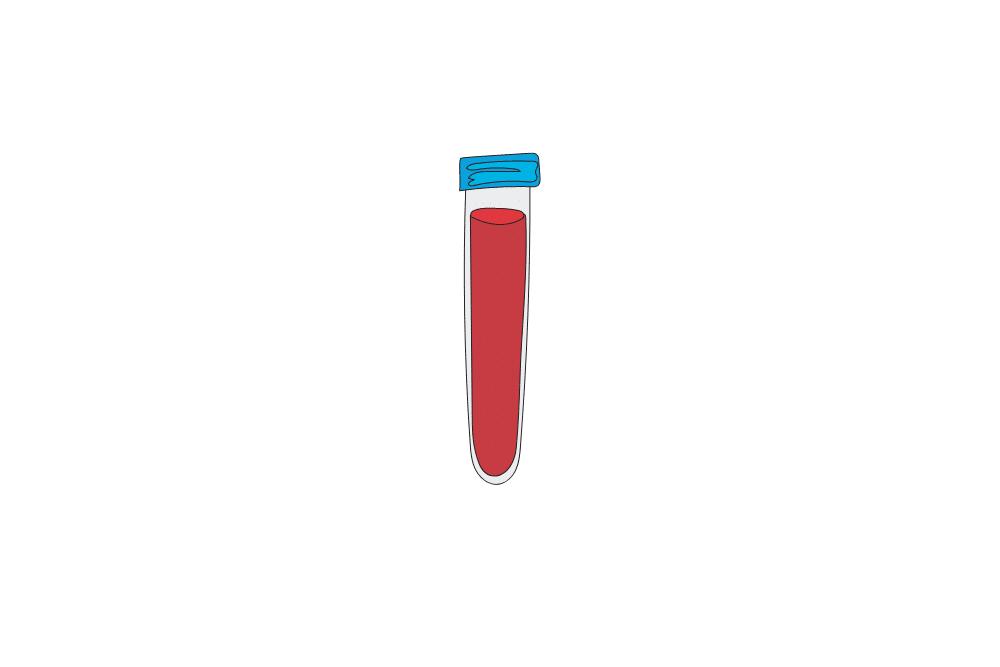So, you’ve got some questions about testing for herpes? Totally understandable. It’s not exactly the most glamorous topic, but it’s super important to take care of your reproductive health. Whether you’re just curious or you’re experiencing herpes symptoms, getting tested is a smart move. In this guide, we walk through everything you need to know about testing for herpes so you can navigate this process with confidence.
Early Signs and Symptoms of Herpes
Understanding the early signs and symptoms of herpes is essential for prompt diagnosis and effective management. To clear up any confusion, let’s look at the signs that may signal the onset of a herpes outbreak . From tingling sensations to flu-like symptoms, recognising these early signs can empower you to seek timely testing and medical guidance.
Most people with genital herpes don’t show any symptoms, but for those who do, it can be quite a bother. You might feel a stinging, itching, or tingling sensation in your genital area, followed by the appearance of small bumps or blisters around your genitals or mouth. These blisters can burst or bleed, turning into painful red sores that resemble a rash or cracked skin. Passing urine might become difficult, and sores can show up on any skin that had contact during sex, including the penis, labia, clitoris, vulva, anus, buttocks, and inner thighs.¹
The first outbreak can come with flu-like symptoms such as a fever, headache, and swollen glands. An illustration of genital herpes would show an outbreak of blisters and sores on the genitals.
After the initial episode, the virus remains in your body for life, meaning you can experience recurrent outbreaks. These flare-ups tend to be milder, shorter, and less frequent over time. They’re more likely to occur when your immune system is weakened due to illness, fatigue, or stress.
Symptoms can vary from person to person, and not everyone will experience all of these signs during a herpes outbreak. Some people with herpes may have very mild symptoms or no symptoms at all, making it possible to transmit the virus to others unknowingly.

Types of Herpes
Two main types of herpes simplex virus (HSV) that affect humans:
Herpes Simplex Virus Type 1 (HSV-1)
This type of herpes primarily causes oral herpes infections, commonly known as cold sores or fever blisters. HSV-1 is typically transmitted through oral-to-oral contact, such as kissing or sharing utensils. It can also be transmitted through oral-genital contact, leading to genital herpes infections. While HSV-1 traditionally affects the mouth and lips, it can also cause genital herpes through oral-genital contact.
Herpes Simplex Virus Type 2 (HSV-2)
HSV-2 is the primary cause of genital herpes, a sexually transmitted infection characterised by painful genital sores or blisters. Genital herpes is primarily transmitted through sexual contact, including vaginal, anal, and oral sex. However, HSV-2 can also cause oral herpes infections, typically through oral-genital contact.
Both herpes simplex virus infections (HSV-1 and HSV-2) are highly contagious and can be transmitted even when the infected individual does not have visible genital sore or cold sore symptoms. Additionally, both herpes viruses can cause recurrent outbreaks, with symptoms ranging from mild to severe. If you are wondering: Can cold sores cause genital herpes and vice versa? It’s important to note that while HSV-1 tends to cause oral herpes and HSV-2 tends to cause genital herpes, either virus can infect either area of the body.
Get herpes treatment online with Youly! »Herpes Testing Methods
Here are three standard testing methods for herpes:
Viral Culture
In this method, a healthcare provider collects a sample from a blister, sore, or lesion during an active outbreak. The sample is then sent to a laboratory, where it is cultured to see if the herpes virus is present. This method is most effective when performed on fresh lesions, as the virus may not be detectable in older sores. However, it can take several days for the results to be available.
Polymerase Chain Reaction (PCR) Test
PCR testing is a highly sensitive method that detects the genetic material (DNA) of the herpes virus in a sample collected from a blister, sore, or lesion. This test can accurately identify the presence of the virus, even when there are no visible symptoms. PCR tests are typically faster than viral culture, with results available within a day or two.
Herpes Blood Test (Serology)
Blood tests detect antibodies produced by the immune system in response to a herpes infection. These antibodies can be detected in the bloodstream, indicating whether a person has been infected with the herpes virus in the past. Blood tests can differentiate between HSV-1 and HSV-2 infections and can help diagnose herpes when there are no visible symptoms. However, blood tests may not accurately determine the timing of infection or distinguish between oral and genital herpes.
The availability and accuracy of herpes testing methods may vary depending on the healthcare provider and testing facility. Additionally, timing can be essential for accurate results, so following any instructions provided by your healthcare provider for sample collection and testing is essential.

When to Get Tested for Herpes
Knowing when to get tested for herpes is the key to accurate diagnosis and timely herpes treatment . Here are some scenarios in which you should consider getting tested:
Experiencing Symptoms
If you notice any symptoms of herpes, such as tingling, itching, pain, redness, swelling, or the appearance of blisters or sores on or around your genitals, anus, or mouth, it’s essential to get tested as soon as possible. Testing during an active outbreak can help confirm whether herpes is the cause of your symptoms.
Recent Exposure
If you’ve had sexual contact with someone who has herpes or if you suspect you may have been exposed to the virus, it’s a good idea to get tested. Keep in mind that herpes can be transmitted even when the infected person does not have visible symptoms.
Routine Screening
If you’re sexually active and want to know your herpes status, consider getting tested as part of routine sexual health screenings, especially if you have multiple sexual partners or engage in high-risk behaviours.
Pregnancy Planning
If you’re planning to become pregnant or are already pregnant, discussing herpes testing with your healthcare provider is essential. Herpes can be transmitted non-sexually , from mother to baby, during childbirth, which can lead to serious complications for the newborn. Testing and appropriate management during pregnancy can help reduce the risk of transmission to the baby.
Peace of Mind
If you’re unsure about your herpes status or have concerns about your sexual health, getting tested can provide peace of mind and empower you to make informed decisions about your health and relationships.
Remember that herpes testing is most accurate during an active outbreak, but blood tests can also detect the virus even when symptoms are absent. If you’re unsure whether you should get tested for herpes, discuss your concerns with a healthcare provider who can provide personalised guidance based on your risk factors and medical history.
Treat herpes with Youly! »Understanding Herpes Test Results
Understanding test results for herpes can provide essential insights into your health status and guide herpes management strategies . Here’s a general overview of how to interpret herpes test results:
Positive Result
A positive test result indicates that the herpes virus was detected in the sample collected during testing. This means you have been infected with the herpes virus at some point. Depending on the type of test performed, a positive result may indicate either a current or past infection with the virus. It’s important to follow up with a healthcare provider to discuss the implications of a positive result and develop a plan for managing the infection.
Negative Result
A negative test result indicates that the herpes virus was not detected in the sample collected during testing. However, false-negative results can occur, particularly if the test is performed during the early stages of infection or if the sample is collected incorrectly. If you have symptoms of herpes or suspect you may have been exposed to the virus, it may be necessary to repeat testing or consider alternative testing methods.
Indeterminate Result
Sometimes, test results may be indeterminate or inconclusive, meaning they do not definitively indicate whether the herpes virus is present or absent. Indeterminate results may occur if the test cannot accurately detect the virus or if the results are ambiguous. In such cases, additional testing or consultation with a healthcare provider may be necessary to clarify the findings and determine the appropriate course of action.
Type-Specific Results
Some herpes tests are able to differentiate between herpes simplex virus type 1 (HSV-1) and herpes simplex virus type 2 (HSV-2) infections. Type-specific results can provide valuable information about the type of herpes virus causing the infection, which may influence treatment decisions and counselling regarding transmission and recurrence risk.

Herpes Treatment Options
There’s no cure for genital herpes, but your doctor can prescribe antiviral medication to help reduce your symptoms. These antivirals work best if you start taking them within two days of noticing the first symptoms. They can help manage frequent or severe outbreaks and lower the risk of passing the virus to a sexual partner.¹
To manage your symptoms, you can:
- Gently bathe the affected area with a warm salt solution (1 teaspoon of salt to 2 cups of water, or 1 cup of salt in a bath).
- Take pain relief medications like paracetamol or ibuprofen.
- Apply a local anesthetic (numbing) ointment or cream.
- Urinate while sitting in a warm bath if urination is painful.
Always consult with a healthcare professional for personalised herpes treatment recommendations and to discuss the potential benefits and risks of various treatment options. Additionally, practising safe sex and disclosing herpes status to sexual partners can help prevent the transmission of the virus.
Herpes Prevention Strategies
Prevention strategies play a big role in reducing the risk of herpes transmission and minimising the frequency and severity of outbreaks. Here are some effective prevention strategies:
- Safe Sex Practices: Regularly using condoms or dental dams during vaginal, anal, and oral sex can significantly reduce the risk of herpes transmission. However, it’s important to note that condoms may not provide complete protection, as herpes can still be transmitted through skin-to-skin contact in areas not covered by the condom.
- Communication: Open and honest communication with sexual partners about herpes status and sexual health is essential for preventing transmission. Discussing herpes status before engaging in sexual activity allows partners to make informed decisions about risk and protection.
- Regular Testing: Getting tested for herpes and other sexually transmitted infections (STIs) regularly, especially if you have multiple sexual partners or engage in high-risk behaviours, can help detect infections early and prevent transmission to others.
- Avoiding High-Risk Behaviours: Avoiding high-risk sexual behaviours, such as having multiple sexual partners or engaging in unprotected sex with partners whose herpes status is unknown, can reduce the risk of herpes transmission.
- Suppressive Therapy: For recurrent genital herpes or oral herpes outbreaks, antiviral medications can be taken daily as suppressive therapy to reduce the frequency and severity of outbreaks and decrease the risk of transmitting the virus to sexual partners.
- Stress Management: Stress can trigger herpes outbreaks in some individuals. Practising stress-reduction techniques such as exercise, meditation, yoga, and deep breathing exercises may help reduce the frequency of outbreaks.
- Maintaining a Healthy Lifestyle: Maintaining a healthy lifestyle, including eating a balanced diet, getting regular exercise, getting enough sleep , and avoiding smoking and excessive alcohol consumption, can support overall immune function and reduce the risk of herpes outbreaks.
- Avoiding Contact During Outbreaks: Avoiding sexual contact during herpes outbreaks, when the virus is most contagious, can help prevent transmission to sexual partners.
By incorporating these prevention strategies into your daily routine and sexual practices, you can reduce the risk of herpes transmission and promote overall sexual health and well-being. It’s important to discuss any concerns or questions about herpes simplex viruses with a healthcare provider who can provide personalised guidance based on your circumstances and risk factors.
Need treatment for herpes? Start your Youly consult today! »Source
- Health Direct. Genital herpes [Internet]. Healthdirect.gov.au. Healthdirect Australia; 2019. Available from: https://www.healthdirect.gov.au/genital -herpes
Disclaimer: The information provided in this blog is for general informational purposes only and is not intended to be a substitute for professional medical advice, diagnosis, or treatment. Always seek the advice of your physician or other qualified health provider with any questions you may have regarding a medical condition. Never disregard professional medical advice or delay in seeking it because of something you have read on this blog. Reliance on any information provided in this blog is solely at your own risk. The health and medical information on this site is provided “as is” without any representations or warranties, express or implied.

